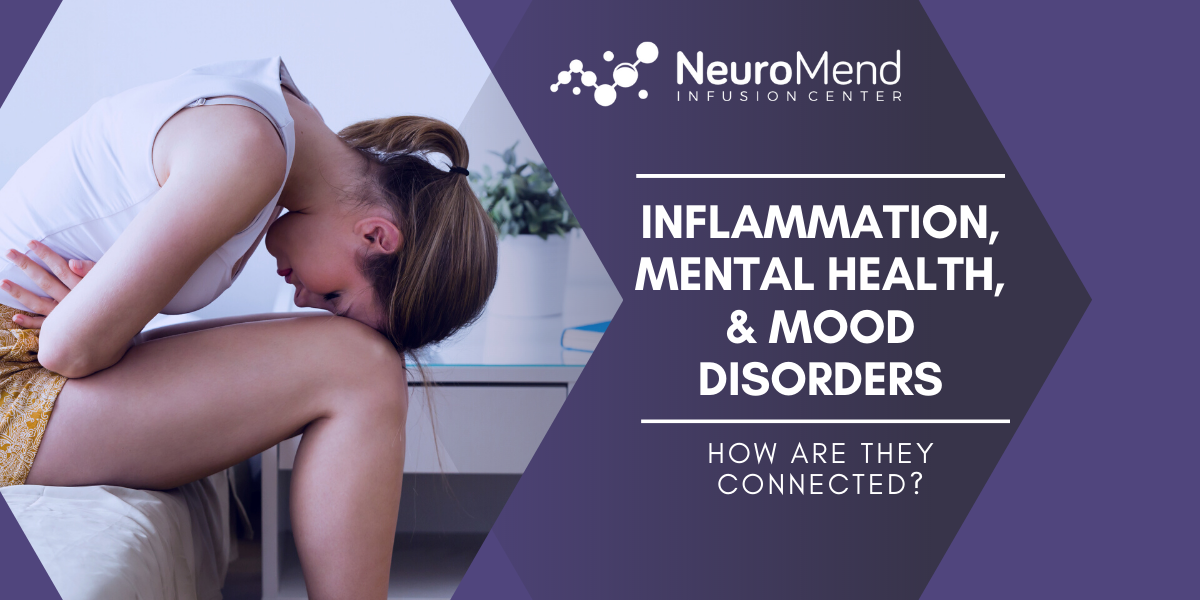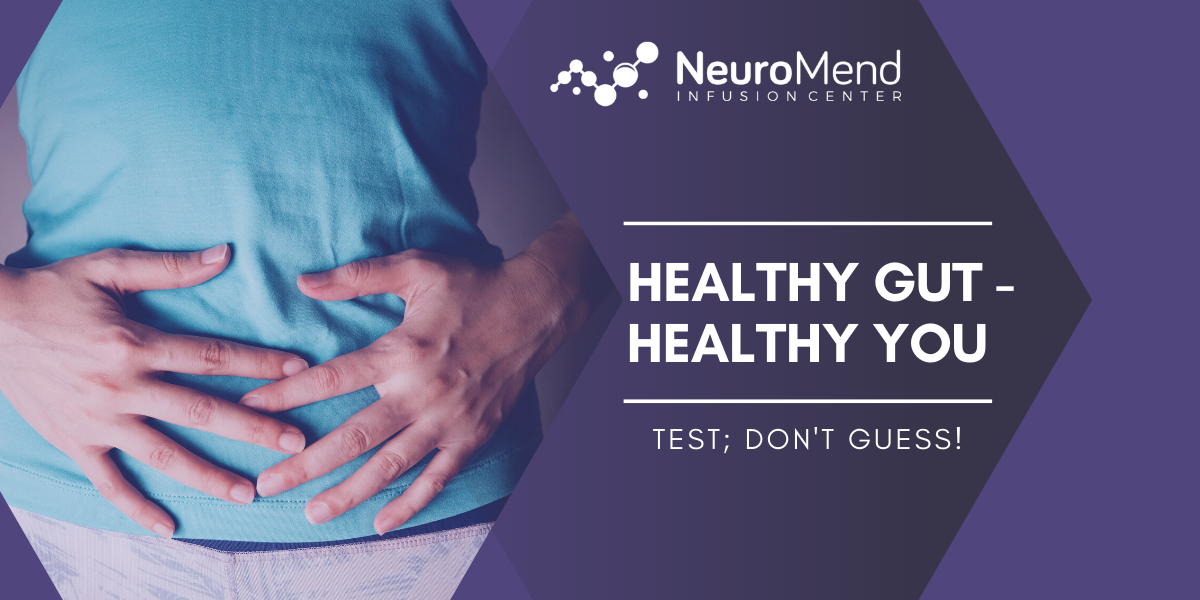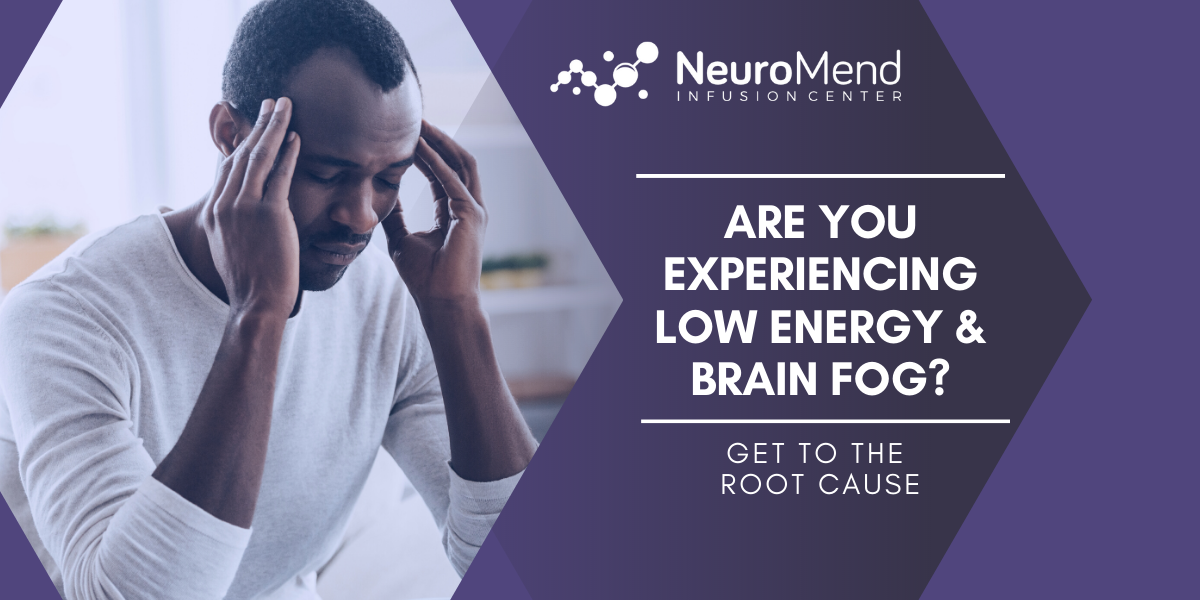
With the mental health space so full of medication and supplement hacks looking to aid neurotransmitter deficiency or excess, most people, unfortunately, overlook the elephant in the room when it comes to mental health longevity and mood: Inflammation.
In this blog, we dive deeper into understanding what exactly causes systemic inflammation throughout our bodies and also how to not only mitigate it, but how do we accurately measure our inflammation levels especially when we can feel that something is just “not right” within our bodies.
Inflammatory Response
While the word “inflammation” gets a bad reputation in the health space, technically, it is responsible for almost all of our healing.
Inflammation is the body’s way of calling in the troops (if you will) so that our cuts, scrapes, and internal damage can be cleaned up and built up stronger than before the insult or injury.
Where we get into trouble is when the body’s immune system is too weak to respond to the insult or our inflammatory response is too strong or uncontrolled for the level of injury that has occurred. Check out our friends at Drip IV for how to strengthen your immune system and decrease inflammation.
Even worse, when we eat or drink certain foods, or not pay quite enough attention to our sleep and recovery, our immune system and inflammatory response tend to get out of control and innocent parts of the body become targets for destruction beyond what is needed for getting back to homeostasis.
Which Labs Should I Be Looking At To Measure Inflammation?
While there are many labs that can be run to understand your body’s inflammation response, the markers below paint a really good picture to illustrate the complete picture of your current systemic inflammatory burden:- hsCRP
- Insulin
- LDL cholesterol
- WBC
- Homocysteine
A few other key items to keep in mind when assessing inflammation:
- How much are you exercising currently? (While exercise is crucial for mental health and training your body’s inflammatory response, too much of it with too little recovery can exhibit signs of inflammation that you are bringing upon yourself.)
- What does your diet look like? (While some people respond well to certain foods, such as dairy and wheat products, other people will not and will indirectly bring upon a chronic level of low-grade inflammation throughout their body. Inflammatory health starts with a healthy gut. Make sure that is working well before aiming for certain medications that promise to place Band-Aids over the root cause of your issues.)
How Can I Decrease My Inflammation
We list a few of our favorites, below:
- How would you rate your ability to manage stress? (Contrary to popular belief, overwhelming levels of mental stress can start a cascade of unmanageable physical stress and inflammation. Make sure you are not allowing your thoughts to steer your inflammatory response down the wrong path.)
- How sensitive are you to your own insulin? (measured by your levels of serum insulin and your blood sugar throughout the day. High levels of insulin make inflammation worse and when these two are combined in the bloodstream for long periods of time, they drastically increase your risk for heart attack and stroke.)
- How would you rate your sleep in regards to quantity and quality throughout the week? (Make sure you are not only sleeping for 7-9 hours per night, but making sure you are getting enough REM and Deep sleep as well. Quality is just as important as Quantity when it comes to restorative sleep.)
- What is your Omega 6/ Omega 3 ratio? (While having adequate Omega 3 levels is important to maintain a healthy inflammatory response, making sure you don’t have high levels of Omega 6 is important as well. Not that one is better than the other, but balance is key here. In our standard American diet, we have far too easy access to Omega 6’s and far too few Omega 3’s. This is where supplementing with high-quality fish oil comes in handy.)
- What supplements have you tried before to lower your inflammation symptoms? Fish Oil? Turmeric? CBD? (While all of these play a bit of a different role in the inflammatory response, they can all be beneficial when it comes to calming down an overactive immune system or inflammatory response. Make sure you are taking adequate levels of only high-quality brands of these as well.)
- How are you mitigating physical pain from exercising? (Natural anti-inflammatory habits such as hot and cold therapy, massage, chiropractor visits, foam rolling, and compression boots are all great ways to flush the body naturally or trigger healthy responses to inflammation. Taking loads of anti-inflammatory medications can have an immediate effect on pain, but can damage the lining of the gut leading to more chronic inflammatory issues down the road. Don’t rely on these types of over the counter medications to heal your inflammation or pain. Figure out the root causes and go after that first.)
Based on your responses to just those questions, you would be providing a great foundation for you and your doctor to start tweaking your current lifestyle in hopes of figuring out which areas of improvement could provide the best return to your improved health.
Remember, we usually “feel” inflammation when it comes to painful joints or sore muscles, but in regard to mental health, inflammation takes on the disguise of anxiety and depression. We may start off not sleeping as well, or feeling extremely fatigued, but when left unmanaged for too long, our mental health begins to suffer and we fall for the trap of thinking we have an “antipsychotic medication deficiency”. While medications can absolutely help some people, focusing on your diet, exercise, gut health, and inflammatory response can return much more bang for your buck with a fraction of the risks for side effects.
Want to Learn More About Functional Mental Health?
"How often should I measure my hs-CRP?"
That, of course, depends on how high your initial number was in the first place and how your level of perceived stress is fluctuating throughout the year. At a minimum, we recommend having it assessed annually.
If you feel as though you would like to measure it more often than your insurance will allow or your doctor feels is necessary (since they only have an opinion and their permission isn't necessary) then contact our friends at HPHI.
Other notable markers for inflammation to ask for are your Homocysteine Levels, Omega-3 Levels, and fasting insulin levels.
How Can We help?
At NeuroMend, we specialize in treating mental health disorders and chronic pain, usually among patients who have treatment-resistant conditions. Studies have demonstrated that Ketamine infusion therapy can work better and more safely than many conventional treatments and medications.
Ketamine can treat and alleviate mood disorders such as depression, anxiety, chronic pain disorders, and can reduce inflammation.
Contact Us
Are you looking for effective treatment solutions? Contact us for more information about our offerings or schedule a free consultation with us.
Disclaimer: As of September 29, 2023, NeuroMend no longer offers Spravato treatments. We apologize for any inconvenience and encourage you to consult with our team or your healthcare provider for alternative options.
ABOUT NEUROMEND INFUSION CENTER
 We are an Evidence-Based Center of Excellence and the leading provider of Ketamine Infusions, IV Infusions and Ketamine Consulting Services for Ketamine Clinics and IV Therapy Clinics.
We are an Evidence-Based Center of Excellence and the leading provider of Ketamine Infusions, IV Infusions and Ketamine Consulting Services for Ketamine Clinics and IV Therapy Clinics.
We Provide Effective Treatment For The Following Conditions: Major Depressive Disorders, Post-traumatic Stress Disorder (PTSD), Bipolar Depression, Obsessive-Compulsive Disorder (OCD), Chronic Migraines, Severe Anxiety, Fibromyalgia, and Chronic Pain Syndromes










